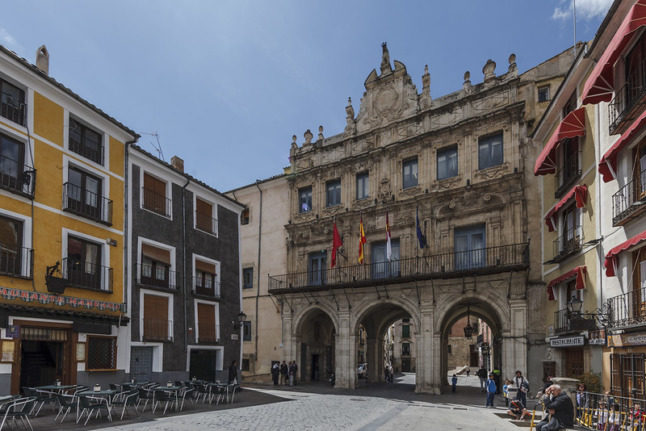1) The padrón helps your town hall get money for certain services
The padrón certificate is basically proof which shows where you are living. Your town hall – or ayuntamiento – uses it to find how many people are living in the area and what their ages are. The number of people living in each area will depend on how much money your local Town Hall will receive from the government. They can use this money for local services such as schools, health centres, parks and police officers.
2) You should register for your padrón within three months of moving to Spain
If you plan on staying in Spain for more than three months and becoming a foreign resident in Spain, you should register for your padrón within this time. You are required by law to register.
3) The registration process is the same, even if you’re a foreigner
The padrón registration process is the same for foreigners as it is for Spanish citizens. To get it, you will need to show:
• Your passport and copy
• Your NIE number
• Your TIE or other residency card and copy
• Your rental contract or title deeds of the property and copy
READ ALSO: Empadronamiento in Spain – What is it and how do I apply?
4) In certain areas, you may need to wait several months to get an appointment to register for your padrón
You need to register for your padrón at your local Town Hall, but depending on how many people live in your area and how many other people have recently moved there, you may need to wait a while. In some of the larger Spanish cities, such as Madrid and Barcelona, you will need to book an appointment to register for your padrón. Sometimes there won’t be a free slot for several months, so be prepared to wait.
5) You may need your padrón certificate in order to apply for other documents
Even though the padrón is essentially so that your Town Hall can receive a certain amount of money from the government, you will need to show your padrón certificate to apply for certain services or to get other documents. Some of the things you may need your padrón certificate for include:
• Registering at your local health centre
• Getting a Spanish driving licence
• To vote in elections (if you’re eligible)
• To apply for a local library card
• To get a pensioner’s card
6) If you are a foreign resident in Spain, you should renew your padrón every two years or every five years, depending on your situation
Even if you don’t move house, you should still renew your padrón. If you are from a country within the EU or have a long-term residence permit (10 years), you should renew it every five years. Those from countries outside the EU with a temporary residence permit (five years) should renew their padrón every two years. If you do not renew it, your Town Hall may remove you from the registry, but should inform you before doing so.
7) There is a difference between your padrón registration and your padrón certificate
As mentioned above, if you are a foreign resident in Spain, you will need to renew your padrón every two or five years, but this is different from the padrón certificate you receive when you first register. The certificate is only valid for three months, so if you need to show your certificate for any reason, you will need to ask for another one at your Town Hall, if it’s older than three months.
8) The Town Hall where you register for your padrón will also be the school district your kids are assigned to
If you have kids of school age, your children will be assigned a school district, depending on where you live and where you are registered on the padrón. You will need to show your padrón certificate when registering your kids at the local schools.
9) Your padrón doesn’t affect your residency status in Spain
Your padrón will not affect your residency status in Spain and has nothing to do with your residency permits, visas or EU green certificates. For example, if you forget to renew your padrón and your local Town Hall removes you from the padrón registry, it will not affect your ability to stay in Spain. Regardless, you should try to renew it when you need to in case you need the padrón certificate for anything. If you ever want to apply for Spanish nationality, you will need to show that you have been living in the country continuously and the padrón system may be a useful way to prove that you have lived in the country without long interruptions.
10) If you move house, you will need to re-register
Because your padrón is associated with where you live, if you move house, you will need to re-register with a different address. Even if you’re moving within the same town or neighbourhood, under the same Town Hall, you should technically re-register so that they have your correct address.
11) If you move towns or cities you don’t need to de-register
If you are moving to a different town or city within Spain, you don’t need to go to your local Town Hall to de-register from the padrón first. All you need to do is to re-register your padrón at your new Town Hall and they will inform your previous one.
12) Your padrón can help you register at a new health clinic
In order to register at your local health centre, you will need to show your padrón certificate – the one that is valid for three months. This will show your health centre where you should be registering. For example, there could be two or more different health centres in the area of your Town Hall and your padrón will tell the local authorities which one you should register at, depending on which is the closest one to your house. If you move house, your certificate will also help you to register and a new health clinic.
13) Non-residents don’t have to register
If you are a non-resident in Spain, then you do not need to register for the padrón. This is only required if you are a full-time resident in Spain. However, many holiday homeowners with non-resident NIEs may choose to register for the padrón as it can make things easier for them to have access to certain services.
14) You are able to register for the padrón without having a permanent fixed address
If you don’t yet have a permanent fixed address, but need to register for the padrón, you can still do so. For example, if you’re living with a friend, then you will need to get a certificate or authorisation stating that you are living at that address, in order to register for your padrón. If you are living somewhere that is not fixed, for example in a caravan, then you will need to go to the social services at your Town Hall so that they can issue you with a certificate verifying where you are living.
15) The padrón can help you get big discounts on flights and ferries
If you are a resident of either the Canary Islands or the Balearic Islands, then your padrón can get you up to 70 percent discounts on transport costs such as flights and ferries. Your padrón can also get discounts on transport if you’re from a large family. If you have three or more children or are a single parent with two children, you can be considered as a ‘Familia Numerosa’ and can get discounts of between 20 and 50 percent on train and bus travel and between five and 10 percent for national flights.
16) Your padrón should not affect your tax status
In theory, there are no tax obligations which come with registering on the padrón and it doesn’t mean that you are automatically a tax resident. However, a padrón can be interpreted as proof that you live in Spain full-time in the eyes of Spanish authorities and they may judge that you should be a tax resident, which if you aren’t you will then have to prove.
Being on the padrón can also have an impact on tax exemptions. If for example you choose to move to Spain permanently and apply for residency, Spain’s Hacienda may not give you the one-year exemption on import duties for the first year to bring over belongings at a cheaper cost, as they’ll assume you’ve been in Spain since you got your padrón. This is the reason why many lawyers in Spain don’t recommend that their clients who are non-resident second home owners get a padrón.



 Please whitelist us to continue reading.
Please whitelist us to continue reading.
Its misleading to say there are no tax implications when registering on the Padron, and in the same paragraph go on to say that the Spanish authorities may use it to show that you are in fact a resident and should be paying tax here.
Excellent article. Very informative. Thank you.
If one has two properties in Spain, in two different towns, can they apply for both padrons? Usually, a resident of one town gets discounted rates for parking and would like to get the discounted rates in both towns. Is this possible?